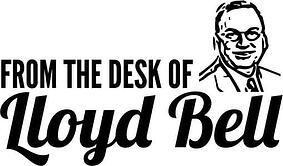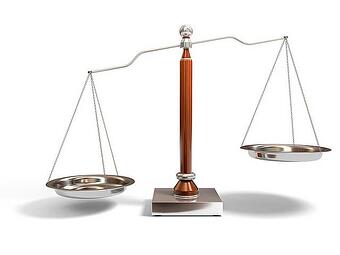Is Your Intangible Value Realistic?
 Let’s pretend that we’re home builders and we will build two identical homes. One will be built in a coveted neighborhood while the other will be built next to a waste water treatment plant. Blech.
Let’s pretend that we’re home builders and we will build two identical homes. One will be built in a coveted neighborhood while the other will be built next to a waste water treatment plant. Blech.
From a cost standpoint, the two homes are identical. It’s a function of the labor and materials. Upon selling, however, we would expect the home in the better location to sell for more than the one that smells a bit rank. The difference is the intangible value of the home. Sure, we could say that the premium is in the land, but dirt is dirt. Land costs more in certain places for intangible reasons.
Where are you going with this, Lloyd?
Now let’s think about a business. What leads to intangible value; that is, the value of the business above and beyond the value of the hard assets? Too often I hear from business owners that argue their business has significant intangible value. Why?
“Everyone in the industry knows our name.” - Good point, Mr. Enron.
“There’s value in our patterns/designs/molds.” – I’m impressed at how organized your Zeppelin blueprints are.
“We’ve been in business for over 30 years.” – Lehman Brothers beat you by 128 years.
“No one else can make this.” – Then I hope you’re able to sell it at a premium.
Intangible value in a business is a function of the profits that are earned in excess of what the tangible assets would be expected to provide. That value can come from a name, patterns, history or special ability, but if and only if those characteristics lead to higher earnings.

Change our example a bit: two companies with identical equipment that have the ability to produce the same product. One sells in large volumes and as a result has higher sales but narrow margins, has slow-paying customers and holds three months of inventory. The other company sells a specialized product, has lower sales but higher margins, collects in 30 days and averages three weeks of inventory on hand. Based on the sales/margin mix their earnings are the same, but their intangible values are very different.
The field of business valuation exists to determine the intangible value of a business, if any, and to help managers understand how to maximize that value. Believe it or not, there are many companies out there whose value is below the value of their tangible assets.
In the end, it is the owner’s prerogative to determine what the value of their business is at any given time. A successful sale, however, requires the buyer to agree to that value otherwise you’re stuck with a nice home and lots of scented candles.
Learn more about business valuation in the blog post below:
Why Business Valuation is About More Than Forecasted Earnings
Image credit: balance scale by winnifredxoxo via Creative Commons License Attribution 2.0
Lloyd W.W. Bell III is Director of the Corporate Finance Group at Meaden & Moore. He has over 30 years of experience in financial management.








